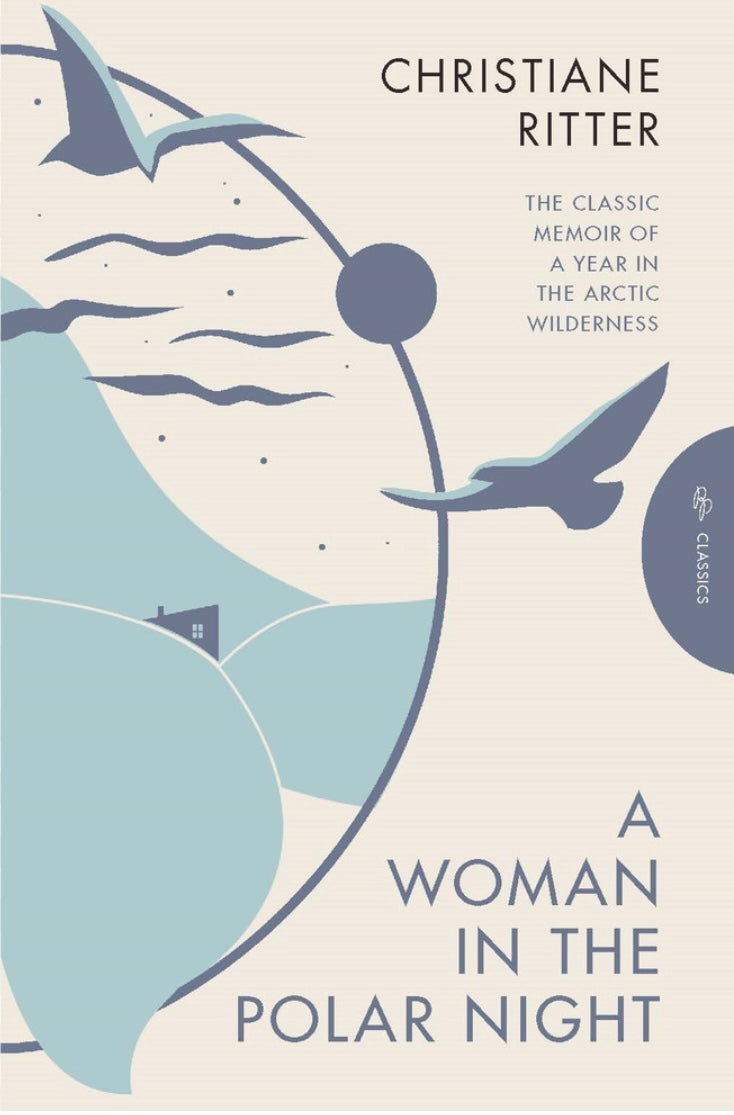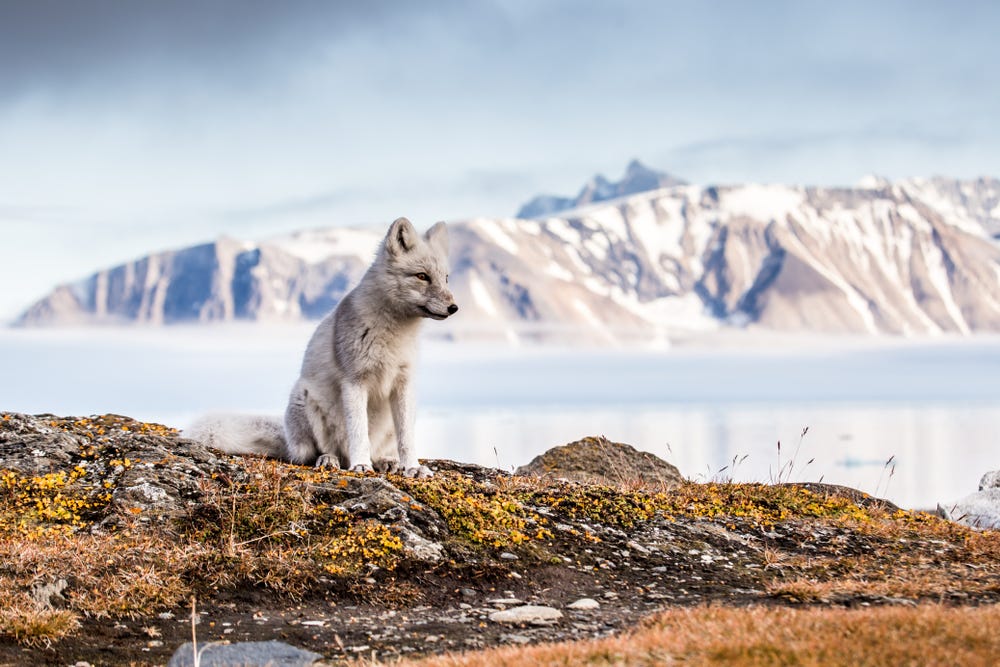A Woman in the Polar Night / True Stories Book Club
Week 1: The Arctic wilderness, salted cabbages and a worrying stove
Find out more about The Way Through Winter course •
Hello,
Welcome to the first week of our new Book Club! I, for one, could not wait to dig into A Woman in the Polar Night this week. I’d read it about two years ago, but I realised today that I remembered more about the end of the book than the beginning. The process of Christiane Ritter’s arrival felt new to me all over again.
There’s so much to process in this part of the book. It is 1934, and Christiane leaves her comfortable life in Austria - seemingly on a whim - to sail up the Norwegian fjords to Spitsbergen, the largest island of the Svalbard archipelago. She’s joining her husband, Hermann, and, it transpires once she gets there, a younger man called Karl, to live for a year in the isolated Arctic wastes. Arriving in fog, it is a long time before she actually sees the surrounding landscape. Until then, she engages in the business of survival: wrangling with the sooty, cracked stove that heats their tiny hut and cooks their food, learning to sleep in a bunk, salting cabbages, and coming to terms with a diet of seal meat. She also falls in love with a young Arctic Fox called Mikkl.
What struck me the most this time around was Ritter’s portrayal of her husband, who has been changed profoundly by his time in the wild. In his previous life, we infer, he was prone to fussiness and frustration. Now, he is preternaturally calm, partly due to a deep love of this territory, and partly because he has learned patience from the slowness of life there. ‘He has changed in the Arctic,’ she writes as she sees him again for the first time. ‘His beaming serenity makes a strange impression.’ Later, in the face of Hermann and Karl’s insouciance toward the food supply, she remarks: ‘It is grotesque how carefree they are.’
How things will change. But for now, the landscape feels unnerving and hostile, excepting the brief moments of sun. A high point for me is when Christiane gets to take a bath in a washed-up tub; but I worry about the carbon monoxide emissions of that stove.
There’s a great article about Christiane Ritter, written by Lucy Jones, here.
I’d love to know what you think so far. I can’t wait to hear your impressions in the comments.
Coming up next:
January 13th - 19th: Chapters 5, 6, 7 and 8
January 20th - 26th: Chapters 9, 10, 11, 12 and 13
January 27th - 31st: Chapters 14, 15, 16, 17 and 18
Take care,
Katherine
If you think a friend or loved one would enjoy The Clearing by Katherine May, gift subscriptions are available here | Website | Buy: Enchantment UK /US | Buy: Wintering UK / US | Buy: The Electricity of Every Living Thing UK / US
This newsletter may contain affiliate links.







I spent a week on Spitsbergen in early 2014, not long after the sun reappeared, and discovering Christiane Ritter’s memoir through this book club is such joy. I was there doing research on the Svalbard Global Seed Vault and staying in the archipelago’s only town, Longyearbyen (population 2,300), so I was quite comfortable, but I have strong visual memories that fit Ritter’s descriptions of the rocks and mountains and frozen waterfalls.
I am so loving this book. And do use Katherine’s link to the Lucy Jones article about Christiane Ritter. There are two wonderful photographs in it, the first of Hermann and Christiane stood their hut, and the second a picture of the hut on its own. Those two pictures simply brought the book even more alive for me. Can you see how the one of the two of them standing outside the hut has the doorway at the end of the building, and in the picture of the hut there is an extension past the doorway? This will be the room Hermann and Karl built for Christine. I can almost feel myself there as they were building it, and the excitement she must have felt as she saw it being put up.
The comfort I live in now suddenly feels so excessive and unnecessary. Her words convey some of the stark reality of how little we really do need, both in terms of material possessions and in pastimes to keep us occupied. Whilst recognising how horribly dependent I have become on comfort, this book makes me yearn for her experience. And what a different world we would live in if her words about her experience had been taken to heart.